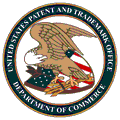
 Microsoft's uniqueness in this regard is worth stressing over and over again because some people forget why Mono is a problem. It's the holder of the patent one must pay attention to, not the many software patents which are already out there.
Microsoft's uniqueness in this regard is worth stressing over and over again because some people forget why Mono is a problem. It's the holder of the patent one must pay attention to, not the many software patents which are already out there.
Referring to Microsoft's PgDn/PgUp patent, which was mentioned a couple of days, Matt Asay writes:
I used to believe that patents had to be non-obvious to make the cut, but Microsoft here demonstrates that the only obvious thing about patents is that the more they encumber the industry with both silly and even useful "inventions," innovation will be stifled. Indeed, it already has been.
We're veering toward a tragedy of the anti-commons, indeed.
Patent 7,415,666 was submitted in March 2005 so it took three years for the patent office to take in all this mumbo-jumbo and decide to give its approval. So if the USPTO is going to approve nearly every patent -- and I'd love to see a list of rejected ones -- why does it take three years to do so?
Gary announced yesterday on his patent blog site Patent Prospector, that he has filed a complaint in the Eastern District of Texas, accusing Microsoft of infringing U.S. Patent 7,363,592, titled "Tool Group Manipulations."
Why are software patents so odious? It has nothing to do with the patent system itself. The patent system is a generally good system whose benefits typically outweigh any problems that it creates. The problem with software patents comes from a failure on the part of people who are outside of the realm of software development to realize that software design and sales do not operate according to the same rules as other products. Software, if anything, is the quintessential exception to the patent system for products because the relationship that software has to hardware and between buyer and seller does not exist in pharmaceuticals and other patent-dependent industries.
Software development rarely sees the labor and capital-intensive research that is done in industries like the pharmaceutical industry
Over the past three months, I've been communicating at length with several leaders in the Open Source Software (OSS) community about how best to license software patents in a way that supports the goal of OSS developers, users, and distributors. I've learned a great deal along the way about the uneasy relationship between OSS and software patents.
[...]
I believe that by being open, honest and fair with the people in the OS communities, there will be no need for patent infringement litigation since developers and distributors will appreciate my position, realize that we're not "gangs of bandits," and act with integrity for a win-win relationship.
As you are certainly aware, one of the aims of the `Better Regulation' policy that is part of the Lisbon agenda is to increase the transparency of the EU legislative process. By wilfully ignoring scientific analysis and evidence that was made available to the Commission upon its own initiative, the Commission's recent Intellectual Property package does not live up to this ambition. Indeed, the Commission's obscuration of the IViR studies and its failure to confront the critical arguments made therein seem to reveal an intention to mislead the Council and the Parliament, as well as the citizens of the European Union.
In doing so the Commission reinforces the suspicion, already widely held by the public at large, that its policies are less the product of a rational decision-making process than of lobbying by stakeholders. This is troublesome not only in the light of the current crisis of faith as regards the European lawmaking institutions, but also - and particularly so - in view of European citizens' increasingly critical attitudes towards intellectual property law.
I hereby urge the Commission to fully inform the European Parliament and the Council of Ministers of the findings of our studies in connection with the above-mentioned proposals and to duly and properly reference our work in future policy initiatives.
Copies of this letter will be sent to Mr. C. McCreevy (Commissioner DG Market and Services), the European Parliament and the Council of the EU.
Albritton v. Patent Troll Tracker
The subpoena demands, inter alia, that Google turn over 'all documents referring or relating to communications to or from (1) Richard Frenkel a/k/a/ "The TrollTraker," (2) Dennis Crouch, individually and sub.nom. "Patently O," … (7) the blogs [defined as Patently-O and PatentTrollTracker blogs]" regarding Albritton, the filing of the ESN lawsuit, or related TrollTracker postings.' The subpoena also requests related Google search records ("all documents referring or relating to user searches of the internet and/or the blogs regarding (1) Eric M. Albritton…") and other records ("all documents referring or relating to the establishment, creation, maintenance, and financial support for the blogs").